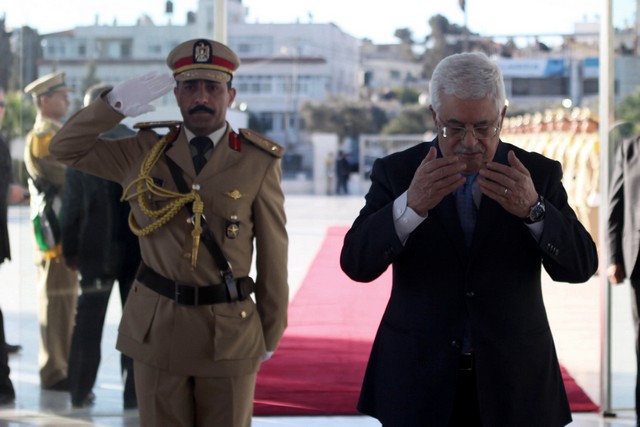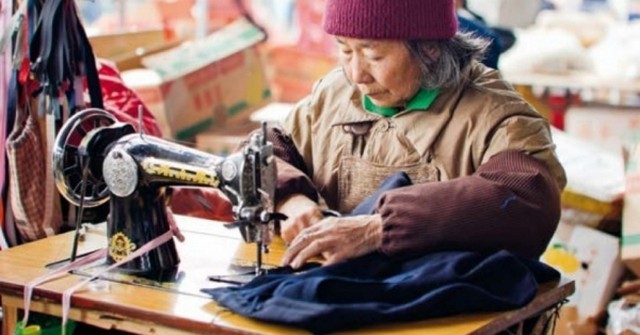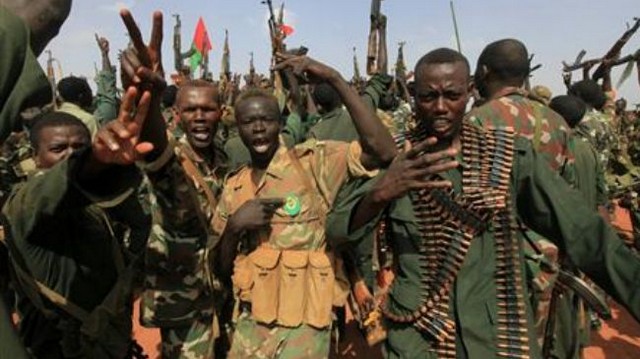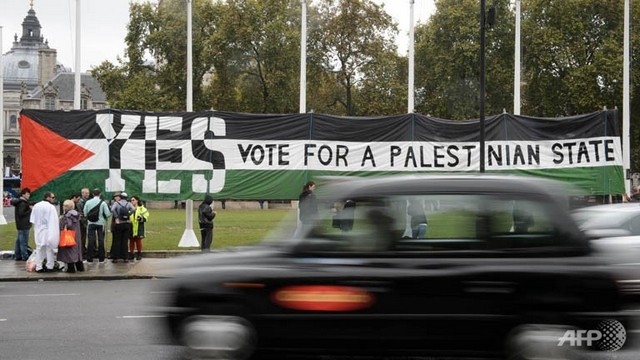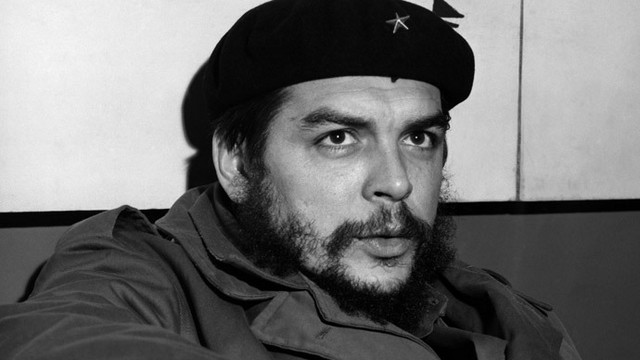By Peter Van Buren
You know the joke? You describe something obviously heading for disaster — a friend crossing Death Valley with next to no gas in his car — and then add, “What could possibly go wrong?”
Such is the Middle East today. The U.S. is again at war there, bombing freely across Iraq and Syria, advising here, droning there, coalition-building in the region to loop in a little more firepower from a collection of recalcitrant allies, and searching desperately for some non-American boots to put on the ground.
Here, then, are seven worst-case scenarios in a part of the world where the worst case has regularly been the best that’s on offer. After all, with all that military power being brought to bear on the planet’s most volatile region, what could possibly go wrong?
1. The Kurds
The lands the Kurds generally consider their own have long been divided among Turkey, Iraq, Syria, and Iran. None of those countries wish to give up any territory to an independence-minded ethnic minority, no less find a powerful, oil-fueled Kurdish state on their borders.
In Turkey, the Kurdish-inhabited border area with Iraq has for years been a low-level war zone, with the powerful Turkish military shelling, bombing, and occasionally sending in its army to attack rebels there. In Iran, the Kurdish population is smaller than in Iraq and the border area between the two countries more open for accommodation and trade. (The Iranians, for instance, reportedly refine oil for the Iraqi Kurds, who put it on the black market and also buy natural gas from Iran.) That country has nonetheless shelled the Kurdish border area from time to time.
The Kurds have been fighting for a state of their own since at least 1923. Inside Iraq today, they are in every practical sense a de facto independent state with their own government and military. Since 2003, they have been strong enough to challenge the Shia government in Baghdad far more aggressively than they have. Their desire to do so has been constrained by pressure from Washington to keep Iraq whole. In June, however, their military, the Peshmerga, seized the disputed, oil-rich city of Kirkuk in the wake of the collapse of the Iraqi army in Mosul and other northern cities in the face of the militants of the Islamic State (IS). Lacking any alternative, the Obama administration let the Kurds move in.
The Peshmerga are a big part of the current problem. In a near-desperate need for some semi-competent proxy force, the U.S. and its NATO allies are now arming and training them, serving as their air force in a big way, and backing them as they inch into territory still in dispute with Baghdad as an expedient response to the new “caliphate.” This only means that, in the future, Washington will have to face the problem of how to put the proverbial genie back in the bottle if the Islamic State is ever pushed back or broken.
Mosul, Iraq’s second largest city and now under the control of the Islamic State, is the most obvious example. Given the woeful state of the Iraqi army, the Kurds may someday take it. That will not go down well in Baghdad and the result could be massive sectarian violence long after IS is gone. We were given a small-scale preview of what might happen in the town of Hassan Sham. The Kurds took it back last month. In the process, some Shia residents reportedly sided with their enemies, the Sunni militants of IS, rather than support the advancing Peshmerga.
Worst-case scenario: A powerful Kurdistan emerges from the present mess of American policy, fueling another major sectarian war in Iraq that will have the potential to spill across borders. Whether or not Kurdistan is recognized as a country with a U.N. seat, or simply becomes a Taiwan-like state (real in all but name), it will change the power dynamic in the region in ways that could put present problems in the shade. Changing a long-held balance of power always has unintended consequences, especially in the Middle East. Ask George W. Bush about his 2003 invasion of Iraq, which kicked off most of the present mess.
2. Turkey
You can’t, of course, talk about the Kurds without discussing Turkey, a country caught in a vise. Its forces have battled for years against a Kurdish separatist movement, personified by the PKK, a group Turkey, NATO, the European Union, and the United States all classify as a terrorist organization. Strife between the Turks and the PKK took 37,000 lives in the 1980s and 1990s before being reduced from a boil to a simmer thanks to European Union diplomacy. The “problem” in Turkey is no small thing — its Kurdish minority, some 15 million people, makes up nearly 20% of the population.
When it comes to taking action in Syria, the Turks exist in a conflicted realm because Washington has anointed the Kurds its boots on the ground. Whatever it may think it’s doing, the U.S. is helping empower the Kurdish minority in Syria, including PKK elements arrayed along the Turkish border, with new weapons and training.
The Turkish ruling party has no particular love for those who run the Islamic State, but its loathing for Syrian ruler Bashar al-Assad is such that its leaders have long been willing to assist IS largely by looking the other way. For some time, Turkey has been the obvious point of entry for “foreign fighters” en route to Syria to join IS ranks. Turkey has also served as the exit point for much of the black-market oil — $1.2 to $2 million a day — that IS has used to fund itself. Perhaps in return, the Islamic State released 49 Turkish hostages it was holding, including diplomats without the usual inflammatory beheading videos. In response to U.S. requests to “do something,” Turkey is now issuing fines to oil smugglers, though these have totaled only $5.7 million over the past 15 months, which shows the nature of Turkey’s commitment to the coalition.
The situation in the IS-besieged town of Kobani illustrates the problem. The Turks have so far refused to intervene to aid the Syrian Kurds. Turkish tanks sit idle on hills overlooking the hand-to-hand combat less than a mile away. Turkish riot police have prevented Turkish Kurds from reaching the town to help. Turkish jets have bombed PKK rebels inside Turkey, near the Iraqi border.
Meanwhile, U.S. air strikes do little more than make clear the limits of air power and provide material for future historians to write about. American bombs can slow IS, but can’t recapture parts of a city. Short of destroying Kobani by air to save it, U.S. power is limited without Turkish ground forces. Under the present circumstances, the fighters of the Islamic State will either take the city or it will slowly burn as they slug it out with the Kurds.
The Turkish price for intervention, publicly proclaimed, is the creation of a U.S.-enforced buffer zone along the border. The Turks would need to occupy this zone on the ground, effectively ceding Syrian territory to Turkey (as a buffer zone occupied by Kurds would not do). This would involve a further commitment from Washington, potentially placing American warplanes in direct conflict with Syria’s air defenses, which would have to be bombed, widening the war further. A buffer zone would also do away with whatever secret agreements may exist between the U.S. and Assad. This zone would represent another open-ended commitment, requiring additional U.S. resources in a conflict that is already costing American taxpayers at least $10 million a day.
On the other hand, Washington’s present policy essentially requires Turkey to put aside its national goals to help us achieve ours. We’ve seen how such a scenario has worked out in the past. (Google “Pakistan and the Taliban.”) But with Kobani in the news, the U.S. may yet succeed in pressuring the Turks into limited gestures, such as allowing American warplanes to use Turkish airbases or letting the U.S. train some Syrian rebels on its territory. That will not change the reality that Turkey will ultimately focus on its own goals independent of the many more Kobanis to come.
Worst-case scenario: Chaos in Eastern Turkey’s future, while the sun shines on Assad and the Kurds. An influx of refugees are already taxing the Turks. Present sectarian rumblings inside Turkey could turn white hot, with the Turks finding themselves in open conflict with Kurdish forces as the U.S. sits dumbly on the sidelines watching one ally fight another, an unintended consequence of its Middle Eastern meddling. If the buffer zone comes to pass, throw in the possibility of direct fighting between the U.S. and Assad, with Russian President Vladimir Putin potentially finding an opening to reengage in the area.
3. Syria
Think of Syria as the American war that never should have happened. Despite years of calls for U.S. intervention and some training flirtations with Syrian rebel groups, the Obama administration had managed (just barely) to stay clear of this particular quagmire. In September 2013, President Obama walked right up to the edge of sending bombers and cruise missiles against Assad’s military over the purported use of chemical weapons. He then used an uncooperative Congress and a clever Putin-gambit as an excuse to back down.
This year’s model — ignore Assad, attack IS — evolved over just a few weeks as a limited humanitarian action morphed into a fight to the finish against IS in Iraq and then into bombing Syria itself. As with any magician’s trick, we all watched it happen but still can’t quite figure out quite how the sleight of hand was done.
Syria today is a country in ruins. But somewhere loose in that land are unicorns — creatures often spoken of but never seen — the Obama administration’s much publicized “moderate Syrian rebels.” Who are they? The working definition seems to be something like: people who oppose Assad, won’t fight him for now, but may in the meantime fight the Islamic State, and aren’t too “fundamentalist.” The U.S. plans to throw arms and training at them as soon as it can find some of them, vet them, and transport them to Saudi Arabia. If you are buying stock in the Syrian market, look for anyone labeled “moderate warlord.”
While the U.S. and its coalition attacks IS, some states (or at least wealthy individuals) in that same band of brothers continue to funnel money to the new caliphate to support its self-appointed role as a protector of Sunnis and handy proxy against Shia empowerment in Iraq. Vice President Joe Biden recently called out some of America’s partners on this in what was billed as another of his famous gaffes, requiring apologies all around. If you want to see the best-case scenario for Syria’s future, have a look at Libya, a post-U.S. intervention country in chaos, carved up by militias.
Worst-case scenario: Syria as an ungoverned space, a new haven for terrorists and warring groups fueled by outsiders. (The Pakistani Taliban has already vowed to send fighters to help IS.) Throw in the potential for some group to grab any leftover chemical weapons or SCUD-like surface-to-surface missiles from Assad’s closet, and the potential for death and destruction is unending. It might even spread to Israel.
4. Israel
Israel’s border with Syria, marked by the Golan Heights, has been its quietest frontier since the 1967 war, but that’s now changing. Syrian insurgents of some flavor recently seized border villages and a crossing point in those heights. United Nations peacekeepers, who once patrolled the area, have mostly been evacuated for their own safety. Last month, Israel shot down a Syrian plane that entered its airspace, no doubt a warning to Assad to mind his own business rather than a matter of military necessity.
Assumedly, the Obama administration has been in behind-the-scenes efforts, reminiscent of the 1991 Gulf War when Iraqi SCUDS began raining down on Israeli cities, to keep that country out of the larger fight. It is not 1991, however. Relations between the U.S. and Israel are far more volatile and much testier. Israel is better armed and U.S. constraints on Israeli desires have proven significantly weaker of late.
Worst-case scenario: An Israeli move, either to ensure that the war stays far from its Golan Heights frontier or of a more offensive nature aimed at securing some Syrian territory, could blow the region apart. “It’s like a huge bottle with gas surrounded by candles. You just need to push one candle and everything can blow up in a minute,” said one retired Israeli general. Still, if you think Israel worries about Syria, that’s nothing compared to how its leadership must be fuming over the emergence of Iran as an ever-stronger regional power.
5. Iran
What can go wrong for Iran in the current conflict? While in the Middle East something unexpected can always arise, at present that country looks like the potential big winner in the IS sweepstakes. Will a pro-Iranian Shia government remain in power in Baghdad? You bet. Has Iran been given carte blanche to move ground forces into Iraq? Check. Will the American air force fly bombing runs for Iranian ground troops engaged in combat with IS (in a purely unofficial capacity, of course)? Not a doubt. Might Washington try to edge back a bit from its nuclear tough-guy negotiations? A likelihood. Might the door be left ajar when it comes to an off-the-books easing of economic sanctions if the Americans need something more from Iran in Iraq? Why not?
Worst-case scenario: Someday, there’ll be a statue of Barack Obama in central Tehran, not in Iraq.
6. Iraq
Iraq is America’s official “graveyard of empire.” Washington’s “new” plan for that country hinges on the success of a handful of initiatives that already failed when tried between 2003-2011, a time when there were infinitely more resources available to American “nation builders” and so much less in the way of regional chaos, bad as it then was.
The first step in the latest American master plan is the creation of an “inclusive” government in Baghdad, which the U.S. dreams will drive a wedge between a rebellious and dissatisfied Sunni population and the Islamic state. After that has happened, a (re)trained Iraqi army will head back into the field to drive the forces of the new caliphate from the northern parts of the country and retake Mosul.
All of this is unrealistic, if not simply unreal. After all, Washington has already sunk $25 billion dollars into training and equipping that same army, and several billion more on the paramilitary police. The result: little more than IS seizing arsenals of top-notch Americans weaponry once the Iraqi forces fled the country’s northern cities in June.
Now, about that inclusive government. The United States seems to think creating an Iraqi government is like picking players for a fantasy football team. You know, win some, lose some, make a few trades, and if none of that works out, you still have a shot at a new roster and a winning record next year. Since Haider al-Abadi, the latest prime minister and great inclusivist hope, is a Shia and a former colleague of the once-anointed, now disappointed Nouri al-Maliki, as well as a member of the same political party, nothing much has really changed at the top. So hopes for “inclusiveness” now fall to the choices to lead the key ministries of defense and the interior. Both have been tools of repression against the country’s Sunnis for years. For the moment, Abadi remains acting minister for both, as was Maliki before him. Really, what could possibly go wrong?
As for the Sunnis, American strategy rests on the assumption that they can be bribed and coerced into breaking with IS, no matter the shape of things in Baghdad. That’s hard to imagine, unless they lack all memory. As with al-Qaeda in Iraq during the American occupation years, the Islamic State is Sunni muscle against a Shia government that, left to its own devices, would continue to marginalize, if not simply slaughter, them. Starting in 2007, U.S. officials did indeed bribe and coerce some Sunni tribal leaders into accepting arms and payments in return for fighting insurgent outfits, including al-Qaeda. That deal, then called the Anbar Awakening, came with assurances that the United States would always stand by them. (General John Allen, now coordinating America’s newest war in Iraq, was a key figure in brokering that “awakening.”) America didn’t stand. Instead, it turned the program over to the Shia government and headed for the door marked “exit.” The Shias promptly reneged on the deal.
Once bitten, twice shy, so why, only a few years later, would the Sunnis go for what seems to be essentially the same bad deal? In addition, this one appears to have a particularly counterproductive wrinkle from the American point of view. According to present plans, the U.S. is to form Sunni “national guard units” — up-armored Sunni militias with a more marketable name — to fight IS by paying and arming them to do so. These militias are to fight only on Sunni territory under Sunni leadership. They will have no more connection to the Baghdad government than you do. How will that help make Iraq an inclusive, unitary state? What will happen, in the long run, once even more sectarian armed militias are let loose? What could possibly go wrong?
Despite its unambiguous history of failure, the “success” of the Anbar Awakening remains a persistent myth among American conservative thinkers. So don’t be fooled in the short term by media-trumpeted local examples of Sunni-Shia cooperation against IS. Consider them temporary alliances of convenience on a tribe-by-tribe basis that might not outlast the next attack. That is nowhere near a strategy for national victory. Wasn’t then, isn’t now.
Worst-case scenario: Sunni-Shia violence reaches a new level, one which draws in outside third parties, perhaps the Sunni Gulf states, seeking to prevent a massacre. Would the Shia Iranians, with forces already in-country, stand idle? Who can predict how much blood will be spilled, all caused by another foolish American war in Iraq?
7. The United States
If Iran could be the big geopolitical winner in this multi-state conflict, then the U.S. will be the big loser. President Obama (or his successor) will, in the end, undoubtedly have to choose between war to the horizon and committing U.S. ground forces to the conflict. Neither approach is likely to bring the results desired, but those “boots on the ground” will scale up the nature of the ensuing tragedy.
Washington’s post-9/11 fantasy has always been that military power — whether at the level of full-scale invasions or “surgical” drone strikes — can change the geopolitical landscape in predictable ways. In fact, the only certainty is more death. Everything else, as the last 13 years have made clear, is up for grabs, and in ways Washington is guaranteed not to expect.
Among the likely scenarios: IS forces are currently only miles from Baghdad International Airport, itself only nine miles from the Green Zone in the heart of the capital. (Note that the M198 howitzers IS captured from the retreating Iraqis have a range of 14 miles.) The airport is a critical portal for the evacuation of embassy personnel in the face of a future potential mega-Benghazi and for flying in more personnel like the Marine Quick Reaction Force recently moved into nearby Kuwait. The airport is already protected by 300-500 American troops, backed by Apache attack helicopters and drones. The Apache helicopters recently sent into combat in nearby Anbar province probably flew out of there. If IS militants were to assault the airport, the U.S. would essentially have to defend it, which means combat between the two forces. If so, IS will lose on the ground, but will win by drawing America deeper into the quagmire.
In the bigger picture, the current anti-Islamic State coalition of “more than 60 countries” that the U.S. patched together cannot last. It’s fated to collapse in a heap of conflicting long-term goals. Sooner or later, the U.S. is likely to once again find itself alone, as it eventually did in the last Iraq war.
The most likely outcome of all this killing, whatever the fate of the Islamic State, is worsening chaos across Iraq, Syria, and other countries in the region, including possibly Turkey. As Andrew Bacevich observed, “Even if we win, we lose. Defeating the Islamic State would only commit the United States more deeply to a decades-old enterprise that has proved costly and counterproductive.” The loss of control over the real costs of this war will beg the question: Was the U.S. ever in control?
In September, Syria became the 14th country in the Islamic world that U.S. forces have invaded, occupied, or bombed since 1980. During these many years of American war-making, goals have shifted endlessly, while the situation in the Greater Middle East only worsened. Democracy building? You’re not going to hear that much any more. Oil? The U.S. is set to become a net exporter. Defeating terrorism? That’s today’s go-to explanation, but the evidence is already in that picking fights in the region only fosters terror and terrorism. At home, the soundtrack of fear-mongering grows louder, leading to an amplified national security state and ever-expanding justifications for the monitoring of our society.
Worst-case scenario: America’s pan-Middle Eastern war marches into its third decade with no end in sight, a vortex that sucks in lives, national treasure, and Washington’s mental breathing room, even as other important issues are ignored. And what could possibly go wrong with that?
Peter Van Buren blew the whistle on State Department waste and mismanagement during the Iraqi reconstruction in his first book, We Meant Well: How I Helped Lose the Battle for the Hearts and Minds of the Iraqi People.
17 October, 2014
Countercurrents.org




